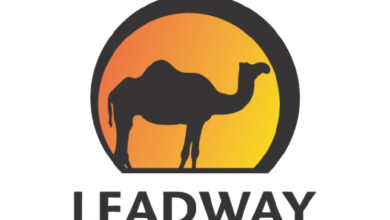Green Energy: African Investment Opportunity To Hit USD7trn By 2050 – Allianz

Allianz, in its recent report on the green energy transition, said African investment opportunity in that sector will hit seven trillion United States Dollars (USD7trn) by 2050.
The green energy transition is a once-in-a-lifetime opportunity for African development, a chance to reduce poverty and lift growth potential. To reap this opportunity, there are three levers to pull: strengthening political stability and the rule of law, reducing project risks by adopting blended finance, and formulating clear green-energy strategies backed by economy-wide transition plans with sector-specific pathways.
This paper aims at the last point, providing guidance for governments and investors alike to achieve the following:
- Limiting global warming to the Paris target of 1.5°C will require USD200bn of investments in the African energy system per year, by 2030, followed by USD370bn per year, by 2050. In total, the investment opportunity adds up to just over USD7trn between 2020-2050.
- On that journey to net zero, two subsectors are pivotal. First, Africa’s electricity production capacities will have to increase tenfold by 2050, requiring USD110bn of investment per annum as early as 2030, which then would need to increase to USD190bn in 2050 to meet the goal of limiting the global temperature increase to 1.5°C.
Second, the report stated that yearly investment needs in the African hydrogen market will have to reach USD2-3bn per year in 2030 and USD4-9bn in 2050.
“African countries feature a promising combination of resources, coastal access and favorable location, positioning the continent as a potential central hub for the hydrogen-based global economy. Note that hydrogen investments in Nigeria are set to be significantly higher than in most other major African economies and will already reach USD2bn in 2040.
“Global warming is the largest threat to humanity and a major driver of poverty and inequality, conflicts and violence. Nowhere is this more true than in Africa, which is at the epicenter of the climate crisis: Although the continent contributed the least to global warming, it is burdened with the highest impacts and losses.
“An African energy transition would not only mitigate climate change but also reduce poverty by increasing labor productivity, agricultural yields, water availability, food security and human health. Moreover, while mainly low-skilled jobs in “brown” sectors would be lost, higher-skilled jobs in “green” sectors would be gained, potentially leading to much higher human capital levels. In a nutshell, the energy transition provides tremendous development prospects for African countries.”
Allianz operates in multiple countries in Africa through Allianz Africa, Allianz Global Corporate & Specialty, Allianz Trade, and Allianz Egypt.
The report features four different climate scenarios. These are not forecasts, but projections in which the economic development and activity is consistent with a certain global warming level. For the scenarios with higher temperature increases, the period after 2050 that is not featured is of particular importance as well:
- 1.5°C Net Zero is a scenario in which global warming is kept below 1.5°C with a 50% probability. The carbon budget for additional CO2 emissions past 2020 is limited to 500Gt and net-zero emissions (the state in which “negative emissions” through carbon capture and storage (CCS) activities offset the remaining residual emissions) are globally reached in 2050 at the latest. This scenario represents the necessary ambition level to avoid thresholds that might trigger tipping points that induce cascade effects, and as a result lead to the materialization of the uncertainties in the “fat-tails” of the distribution that that are associated with catastrophic damages.
- Below 2˚C is a scenario in which global warming is kept below 1.8°C with a 50% probability, and below 1.9°C with a 67% probability. The carbon budget for additional CO2 emissions past 2020 is limited to 1000Gt. This is the global warming level in which climate-change-induced damages are higher than the mitigation costs even without triggering any tipping points for global catastrophic events.
- NDCs relates to the ‘Nationally Determined Contributions’, which are the climate commitments that have been submitted by countries in the process related to the international climate negotiations. It represents the current policy announcements. In this scenario, global warming is kept below 2.6°C with a 50% probability, and below 2.9°C with a 67% probability. The carbon budget for additional CO2 emissions past 2020 is limited to around 2500Gt.
- Current Policy is a scenario in which no additional climate policy is enforced compared to the 2020 state of climate policy. It is thus not a representation of the policies that are likely to be seen, but a step back from the current policy path. In this scenario, global warming is kept below 3.0°C with a 50% probability, and below 4.1°C with a 67% probability. The carbon budget for additional CO2 emissions past 2020 is limited to around 4300Gt





